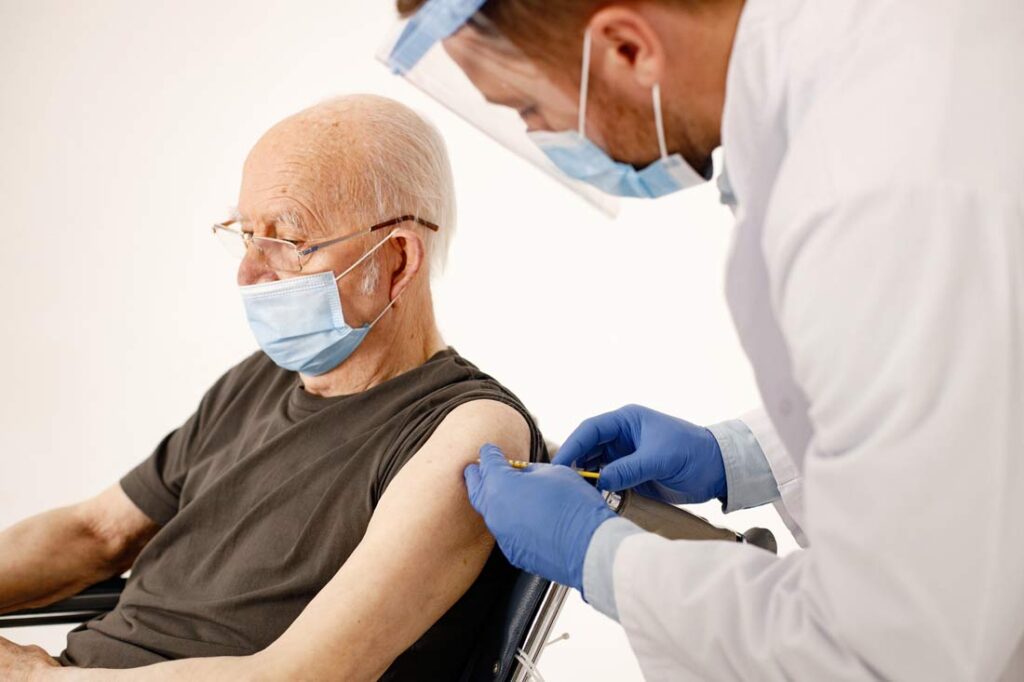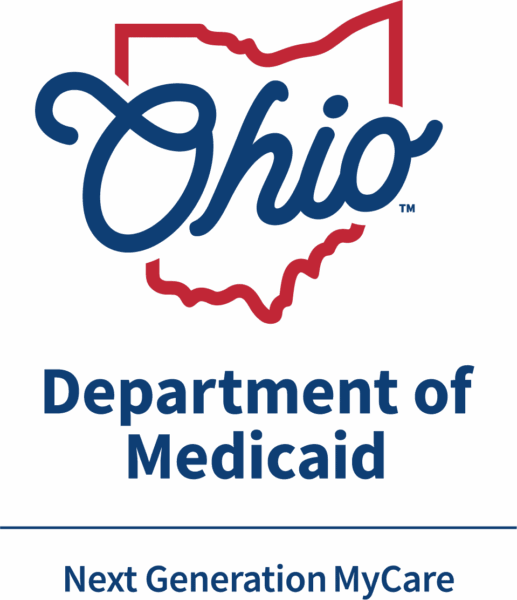What Is the Nassau County Department of Social Services?
Nassau County Department of Social Services (DSS) is committed to helping residents with low incomes and very few resources. Social Services runs a number of assistance programs under federal and state regulations.
Some of the services offered by Nassau County Department of Social Services are:
- Medicaid
- Supplemental Nutrition Assistance Program (SNAP)
- Child care assistance
- Foster care
- Temporary cash assistance
- Home Energy Assistance Program (HEAP)
- Emergency housing
Medicaid
Medicaid is a combined federal and state program that offers medical benefits to eligible individuals and families.
Anyone who is receiving benefits through the Temporary Assistance for Needy Families (TANF), Supplemental Security Income (SSI) as well as aged, blind and disabled individuals, are automatically eligible for Medicaid.
Medicaid covers a wide range of services including:
- Physician consultations
- Laboratory and x-ray services
- Early and periodic screening of children
- Inpatient and outpatient hospital care
- Home health care services
- Skilled nursing care
- Dental care
- Transportation to and from medical appointments
Medicaid makes payments directly to your health care provider. In some cases, you will be asked to cover a small part of the cost for some medical services, known as copayment.
You are not required to cancel any existing insurance policies before submitting your Medicaid application.
Social Security benefits don’t count as income and don’t influence your eligibility for Medicaid services. All New York State residents who receive Social Security or Supplemental Security Income (SSI) automatically qualify for Medicaid.
Medicare transportation assistance
Transportation assistance is part of the Medicaid program managed by LogistiCare in Nassau County. If you don’t have access to a vehicle, you can get free transportation to and from your medical appointments.
What is the income limit for Medicaid in New York?
The annual income level limit for Medicaid 2020 is $17,609 for one-person households and $23,792 for two-person households. For blind, disabled, and people above the age of 65, the limit is $10,500 for individuals and $15,400 for couples.
People above the age of 65, pregnant women, children, and parents of minors, blind and disabled individuals with medical bills may be eligible even when their income is above the Medicaid level.
What is the asset limit for Medicaid in New York?
In the state of New York, a single applicant is allowed to have $15,750 in liquid assets including cash, stocks, bonds, and certificates of deposit to get Medicaid. For couples, this limit is $22,200.
To qualify for Medicaid, the combined cash value of any universal, permanent, and variable life insurance policies must not exceed $1,500.
Exemptions from the asset limit are your primary residence, cars that meet certain requirements, household items, marital jewelry, and burial funds.
How do I apply for Medicaid in Nassau County?
By phone
New York Medicaid Choice: (800) 505-5678
Long Island Medicaid Transportation: (844) 678-1103
In person
New York Medicaid Choice Education and Enrollment Session
Nassau County Department of Social Services
60 Charles Lindbergh Blvd
Uniondale, NY 11553-3656
By mail
Individuals over 65 years old or disabled can submit Medicaid applications in paper format.
Online
More information
Supplemental Nutrition Assistance Program (SNAP)
SNAP is a federally funded assistance program for low-income households, formerly known as Food Stamps.
If you qualify for SNAP, you will receive an electronic benefit transfer card (EBT). In the state of New York, the EBT is known as the Common Benefit Identification Card (CBIC).
CBIC cards are similar to debit cards and can be used in most grocery stores to purchase food. You can only buy food items using your CBIC card. It is not possible to use the card for buying medicine, alcohol, cigarettes, household supplies, or pet food.
SNAP benefits are deposited onto your CBIC card once a month. If you don’t use the entire amount, the remaining benefits will be automatically transferred to the next month.
How much will I get in SNAP allowance in 2020?
Your income and family size determine whether you are eligible for SNAP and the allowance amount you will receive. The maximum monthly SNAP allowance for 2020 is $194 for an individual and $355 for a couple.
The minimum monthly SNAP allowance for 2020 is $16. However, the average amount that people who are eligible get is much higher. If you only get $16 a month, you should check if you have taken into account all the deductions you qualify for. For example, elderly and disabled individuals and couples may be able to deduct the costs of their excess medical and shelter expenses to receive a higher SNAP benefit amount.
When will my SNAP benefits become available?
Your SNAP benefits will generally be available in your CBIC account 30 days from the date you filed the application.
If you have an urgent need, you need to apply for Expedited Food Stamps. They are available within 7 days from the application date.
What is the maximum income to qualify for SNAP?
The monthly gross income limit to qualify for SNAP is $1,354 a single person and $1,832 for a couple. This sum includes cash assistance, Social Security, unemployment insurance, child support, and other benefits.
How much money can I have in the bank and still get SNAP?
Households with elderly members or members with disabilities can have assets of up to $3,500 to qualify for SNAP. For everyone else, the limit is $2,250.
In general, any resources that could be used to purchase food, such as money in bank accounts for example, count as assets. Items that are not accessible, like your home, a car, and retirement savings, don’t count when determining eligibility for SNAP.
Does Social Security count as income for SNAP?
If you are receiving TANF or SSI, you may still be eligible for SNAP assistance to purchase food.
Can I apply for SNAP if I am unemployed?
You may qualify for SNAP to purchase food for yourself and your family if you are unemployed.
Can I get SNAP if I don’t pay rent?
If you rent a room in someone else’s home and don’t pay for meals, you can apply for SNAP as a separate household. In that case, you must purchase and prepare most of your meals separately from the people you are sharing your home with.
How do I apply for SNAP in Nassau County?
In Person
Nassau County DSS
60 Charles Lindbergh Blvd
Uniondale, NY 11553-3656
The Social Security office will help you fill out the SNAP application and send it to the SNAP office for you.
Online
New York Office of Temporary and Disability Assistance application form.
Common application form if you are applying for other assistance programs such as Medicaid or temporary assistance along with SNAP.
More information
SNAP Pre-Screening Eligibility Tool
USDA Food and Nutrition Service – SNAP information page
Child Care Assistance
The Nassau County Social Services child care assistance program helps low-income families with paying parts or the entire amount of child care costs, depending on their needs.
Your case managers will help you select a high-quality, affordable child care provider in your area. You can choose any type of child care that is offered in Nassau County:
- New York State regulated child care centers
- Family and group family child care providers
- School-age programs
- Nursery schools
- Au pair or nanny child care providers
- Day camps
Who is eligible for child care assistance?
You can obtain child care assistance for children between 6 weeks and 12 years old. Children with special needs are eligible for receiving care until the age of 18.
You must also meet New York State income requirements and have a valid reason for child care like employment, approved educational or training programs, or being a teen parent who is attending high school.
If you are on cash assistance and need child care in order to meet work participation requirements, you are guaranteed child care assistance.
How do I apply for child care assistance in Nassau County?
By phone
Division of Child Care Services Long Island Regional Office: (631) 240-2560
Nassau County Department of Social Services: (516) 227-8093
In person
Nassau County DSS
60 Charles Lindbergh Boulevard
Uniondale, NY 11553-3656
More information
Nassau County DSS – Child Care
Child Care Council of Nassau County
Foster Care
Foster care is temporary care for children who are not able to live with their birth families for reasons such as abuse, neglect, family breakdown, or mental health issues. There are over 400,000 children in foster care in the United States.
Who can foster a child?
Anyone above the age of 21 who has sufficient income and can meet a foster child’s health and safety needs is eligible to apply for fostering a child in Nassau County.
You must also be willing to have a home study done by a caseworker from the Child Placement Bureau and complete a 30-hour pre-certification training program.
How do I apply for fostering a child in Nassau County?
By phone
Nassau County DSS: (516) 227-8346
In person
Nassau County DSS
60 Charles Lindbergh Boulevard
Uniondale, NY 11553-3656
More information
Nassau County DSS – Foster Care
Temporary Assistance (Cash Assistance)
Temporary assistance is also known as public assistance. This is cash assistance for people who can’t find work or are unable to work. You are also eligible if you don’t earn enough to pay for your basic needs. You can receive temporary assistance for a limited period of time while you are looking for work, participating in training, or receiving disability benefits.
There are two types of temporary assistance: family assistance and safety net assistance.
Family Assistance (FA)
The family assistance program offers support to families with minor children and pregnant women. You can use these funds to pay for food, shelter, and utilities. You are not allowed to use them to cover any medical expenses.
Family assistance benefits are limited for a total of 60 months (5 years). This period doesn’t need to be consecutive. Once you reach the limit, your case will be automatically transferred to the safety net assistance program. Your benefits will remain the same.
Safety Net Assistance (SNA)
Safety net assistance is cash assistance for individuals and families who are not eligible for family assistance such as:
- Single adults
- Childless couples
- Children who live apart from their parents and adult relatives
- Families of people abusing drugs or alcohol
- People who have reached the family assistance 5-year limit.
You can receive safety net cash assistance for a maximum of two years. After that, your benefits will be provided only in a non-cash form. This means that payments are made directly to your landlord or utility company.
Who is eligible for temporary assistance?
Eligibility for temporary cash assistance is based on income and family size. In addition, to receive assistance, you must be either working or participating in approved work activities.
Individuals and families who are receiving cash assistance are eligible to apply for other benefits such as Medicaid and SNAP.
When you are applying for temporary assistance, you will be interviewed within 7 days and receive the reply within 30-45 days depending on the type of assistance.
How much cash assistance will I get in New York?
The maximum amount of cash assistance benefit in New York is $735 per month for an individual and $1,103 for couples.
What is emergency assistance?
If you have an urgent need, you can apply for emergency assistance. It is available for people with overdue rent or pending eviction, those who are risking homelessness, and individuals who have little or no food.
After you have applied for emergency assistance, you will be interviewed and receive the approval the same day. You don’t need to be eligible for temporary assistance to receive emergency assistance.
How do I apply for temporary assistance in Nassau County?
By phone
Nassau County DSS Public Assistance Programs: (516) 227-8519
In person
Nassau County DSS
60 Charles Lindbergh Boulevard
Uniondale, NY 11553-3656
Online
Check your eligibility for temporary assistance at New York State myBenefits.
Fill in the application form and file it at the Department of Social Services office. You should mention any emergency needs in your application.
More information
Nassau County DSS – Temporary Assistance
Home Energy Assistance Program (HEAP)
Home Energy Assistance Program (HEAP) is a government program intended to help low-income individuals and families to pay for heating costs for their homes. Both households who pay separately for heating costs and those whose heating is included in their rent may be eligible for receiving HEAP benefits. HEAP includes assistance with essential heating equipment repairs and provision of cooling equipment.
It is possible to receive only one regular HEAP benefit per program year, during the period defined as “HEAP season”.
Who is eligible for HEAP?
Eligibility for HEAP benefits depends on your income, household size, primary heating source, and whether there are any household members under the age of 6 or over 60 or permanently disabled.
To qualify, your maximum gross monthly income should not exceed $2,391 for an individual and $3,127 for a couple.
You can qualify for HEAP if you receive other benefits such as SNAP, cash assistance, and Code A Supplemental Security Income.
What is emergency HEAP?
You may be eligible for emergency HEAP benefits if you are in danger of running out of fuel or having your utility service shut off. To apply for emergency HEAP, you should visit the Department of Social Services in person.
How do I apply for HEAP in Nassau County?
By phone
Nassau County DSS: (516) 227-7386
In person
Nassau County DSS
60 Charles Lindbergh Boulevard
Uniondale, NY 11553-3656
Online
More information
New York State HEAP information
Emergency Housing
Emergency housing is short-term accommodation offered by Nassau County Social Services to people who are homeless or in danger of becoming homeless. An emergency services unit worker will assess the individual’s needs and give a referral for an emergency housing placement.
How do I apply for emergency housing in Nassau County?
By phone
Nassau County DSS: (516) 227-8519
Nassau County DSS Emergency Night Services Unit: (516) 573-8626
People who are unable to contact a worker at the emergency number can go to the emergency room of the nearest hospital to seek refuge for the evening.
Nassau County Department of Social Services Office Location
Nassau County Department of Social Services
60 Charles Lindbergh Blvd
Uniondale, NY 11553-3656
Phone: (516) 227-8519
Hours: Monday – Friday 8am-4pm
Website: http://www.nassaucountyny.gov








